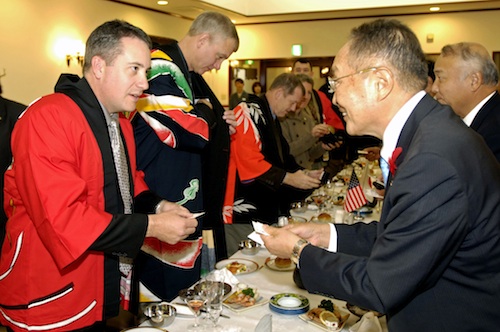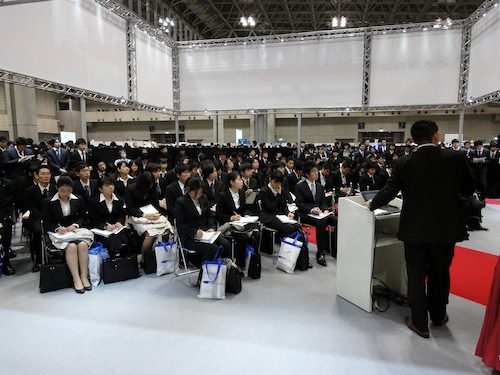Dress For Success: Top 5 Tips for Business Attire in Japan
Japan is known for being a very conservative and traditional country, but in the business realm things have become somewhat westernized. In many aspects you should feel right at home, but before you get too comfortable be sure you understand what is expected of you in terms of dress code and appropriate attire. Japanese culture puts a great deal of emphasis on correct behavior and appearance, so be sure to follow the rules to give off the proper first impression.
1. Don’t try to stand out. Many of the more communally-minded Eastern cultures stress the importance of society over the individual, and Japan is no exception. Trying to show off or exert yourself above your coworkers will be considered bad form (consider the Japanese proverb, “The nail that sticks out gets hit with the hammer). Dress conservatively, in a black or navy blue suit and with a neutral tie, to express your willingness to work as part of a team. Flashy colors or gaudy accessories are customary to the Yakuza, the Japanese mafia, and will reflect poorly on your understanding of Japanese culture.
2. Put care into your wardrobe. Just because you will be dressing to blend in doesn’t mean you shouldn’t dress well. A high-quality tailored suit will reflect well, as it communicates respect for your partners and for yourself.
3. Shoes are just as important as the rest of your outfit. The Japanese are very attentive to small details, so don’t show up wearing a good suit and tacky shoes. Moreover, in some circumstances you may be required to remove your shoes before entering a room (just follow everyone else’s lead), so it may be wise to wear shoes that are easily removed. For women, flat shoes are preferable to high heels.
4. Women, like men, should aim for professional over noticeable. That means a dark colored suit and business skirt of a moderate length – trousers on women are not generally viewed as acceptable. Traditional meals in Japan may involve sitting or kneeling on the floor, so make sure that you don’t wear anything revealing or that may ride up. When it comes to makeup and jewelry, go for the minimal amount.
5. “Business casual” is not a concept in Japanese society. Many companies in the West have “casual Fridays” and other situations where you can come to work in something other than a suit and tie — this would be considered unprofessional in Japan, so don’t try it. Even at events outside the office, such as business lunches, you should play it safe and arrive in appropriately conservative garb. However, if you attend an after-hour socializing event at a bar or karaoke club, casual dress will most likely be fine. Of course, it never hurts to ask.
If you are planning a trip to Japan, whether for business or any other reason, prepare yourself by learning Japanese ahead of time. Send us an inquiry to get started, or take our free online Japanese language level test.


